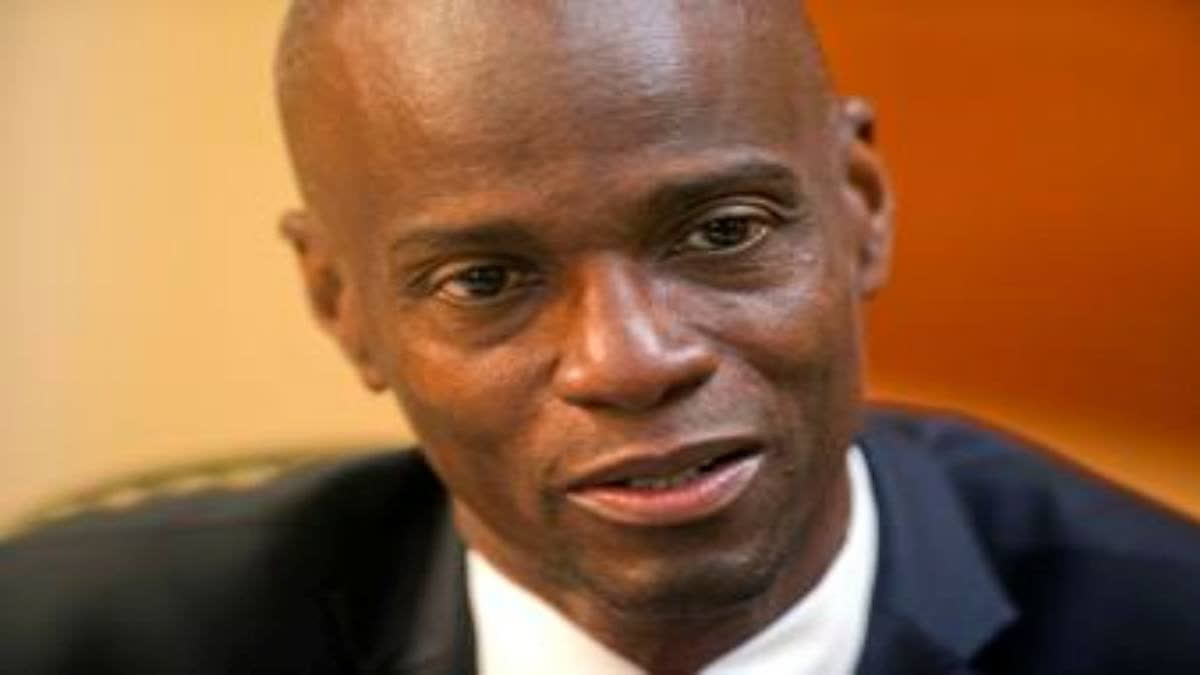Port-Au-Prince(Haiti): A judge in Haiti responsible for investigating the July 2021 assassination of President Jovenel Moïse has indicted his widow, Martine Moïse, ex-prime minister Claude Joseph and the former chief of Haiti's National Police, Léon Charles, among others, according to a report obtained Monday.
The indictments are expected to further destabilize Haiti as it struggles with a surge in gang violence and recovers from a spate of violent protests demanding the resignation of current Prime Minister Ariel Henry.
Dozens of suspects were indicted in the 122-page report issued by Walther Wesser Voltaire, who is the fifth judge to lead the investigation after previous ones stepped down for various reasons, including fear of being killed.
Charles, who was police chief when Moïse was killed and now serves as Haiti's permanent representative to the Organization of the American States, faces the most serious charges: murder; attempted murder; possession and illegal carrying of weapons; conspiracy against the internal security of the state; and criminal association.
Meanwhile, Joseph and Martine Moïse, who was injured in the attack, are accused of complicity and criminal association.
Charles could not be immediately reached for comment, and Martine Moïse's attorney did not return a message for comment,
Meanwhile, Joseph, the former prime minister, shared a statement with The Associated Press accusing Henry of "undermining" the investigation and benefitting from the president's death.
"Henry ... is weaponizing the Haitian justice system, prosecuting political opponents like me. It's a classic coup d'état," Joseph said. "They failed to kill me and Martine Moïse on July 7th 2021, now they are using the Haitian justice system to advance their Machiavellian agenda."
Joseph again called on Henry to resign and noted that while he was still prime minister, he invited the FBI to help local authorities investigate the killing and wrote the U.N. and OAS for help.
"I won't stop my fight. Justice must be served," he said.
In his report, the judge noted that the former secretary general of the National Palace, Lyonel Valbrun, told authorities that he received "strong pressure" from Martine Moïse to put the president's office at the disposal of Joseph because he needed it to "organize a council of ministers."
Valbrun also said that two days before her husband was killed, Martine Moïse visited the National Palace and spent nearly five hours, from 10 p.m. to 3 a.m., removing "a bunch of things."
He said that two days after Jovenel Moïse was slain, Martine Moïse called to tell him that, "Jovenel didn't do anything for us. You have to open the office. The president told Ti Klod to create a council of ministers; he will hold elections in three months so I can become president, now we will have power."
While the document did not identify Ti Klod, the former prime minister, Claude Joseph, is known by that name.
The judge also stated in his report that Martine Moïse "suggested" she took refuge under the marital bed to protect herself from the attackers, but he noted that authorities at the scene found that not "even a giant rat…whose size measures between 35 and 45 centimeters" could fit under the bed.
The judge said the former first lady's statements were "so tainted with contradictions that they leave something to be desired and discredit her."
Others who face charges including murder are Christian Emmanuel Sanon, a Haitian-American pastor who visualized himself as Haiti's next president and said he thought Moïse was only going to be arrested; Joseph Vincent, a Haitian-American and former informant for the U.S. Drug Enforcement Administration; Dimitri Hérard, presidential security chief; John Joël Joseph, a former Haitian senator; and Windelle Coq, a Haitian judge whom authorities say is a fugitive.
